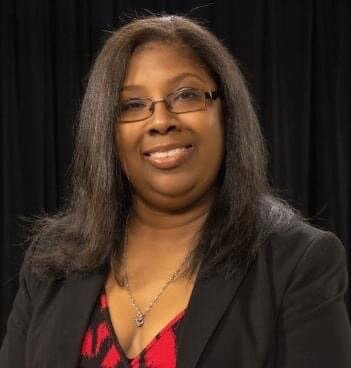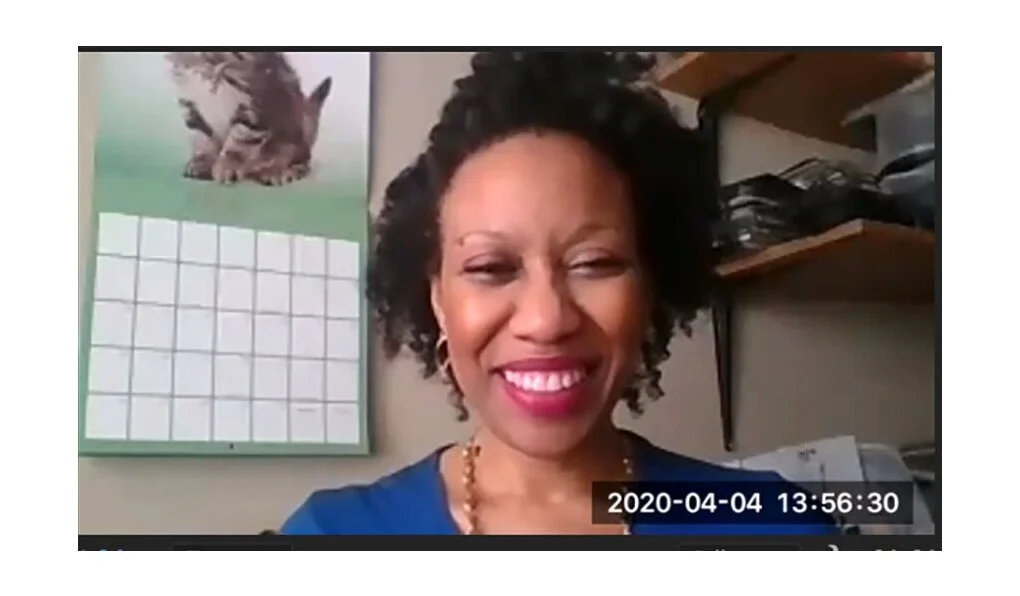Gratitude in Times of Trouble, The Kim B. Davis Show, Episode 1. part 1 (Transcription)
The Kim B. Davis Show
Gratitude in Times of Trouble
A Talk with A.M. May & Associates, Inc.
Part One
KBD: Welcome to the Kim B. Davis Show! We are talking today with Dr. Angela Celeste May and Michelle May of A.M. May & Associates, a coaching and consulting organization offering customized transformative growth strategies for individuals and organizations. Angela and Michelle are sisters who are both also professional musicians with their own bands.
How are you both today?
MM: Fantastic. Thanks for having me.
ACM: Really happy to be here today.
KBD: Great! We are in the midst of a crisis and I wanted to talk about some of the things that you guys talk about, which is not falling prey to anxiety and depression. Can you give a definition on anxiety and depression and talk about how do we turn negativity into positivity? Many people are feeling depressed, anxious and apprehensive and they’re making bad decisions. I want to talk about hope. Even though we are in quarantine, we are safe at home. We have all the things that make us comfortable. But the one thing we don’t have is human touch. Many of us miss our friends and family but we can touch them with electronic devices, cell phones, but how do we take care of ourselves?
ACM: I’ll jump in and start. I’m a clinical organizational and forensic psychologist with a Ph.D. in Clinical Organizational Psychology. So, I deal with behavior from a lot of different perspectives. My own definition. I would say depression is more than feeling a little down sometimes, it’s when tangible sadness tends to follow you no matter what you do. It can be a little bit or become a lot of sadness. So that’s a quick simple way to think of depression, a pervasive “down-ness” no matter what you do. And the anxiety can feel like nervousness, even when you don’t have a specific reason. You’re in your home and feel a nervousness and you quite can’t figure out why. I would say one of the first important things to do is try to practice thankfulness. I do find that depression in particular, a lot of the time it grows because of our self-talk. And in this particular time of the pandemic, a lot of the anxiety is because we feel like we don’t have control. I would say the first place to start is “What can I do to take back feelings of powerless?” and find positive things you can do, and just like you said, Kim, say, “I’m safe, I have a home, etc.” As our grandma used to say, “You can’t be depressed and thankful at the same time.” [laughs]
MM: Amen! Amen! So I’ll jump in here, too. What I would say is, the sense of control is definitely what I find in depression and nervousness. There’s something there intangible you can’t see that’s making you feel this way. One of the things I talk to my clients about and my students that helps is that you’re not completely out of control. There are many things right in your purview that you can control. Many times—and I was actually experiencing this a couple of days ago—I was talking to Angie when all of a sudden I started to feel a little bit like I couldn’t breathe. She said, “Sometimes when you’re excited, it mimics anxiety.” We talked about meditation, stopping for a minute, sitting down and just putting your mind and mindfulness on that breathing. Sometimes you just need to stop and just do that. There is a popular method, the 54321 method and how it works is that you look at things, you can see things, you can feel things. Ask the person having anxiety: “What are 5 things that you can see and stop for a minute. Then, “Name 4 things that you can touch, 3 things you can hear right now, 2 things you can smell, and 1 thing you can taste.” Gratefulness…Angie and I always talk about that. You can feel those things and it helps to quell that in the moment.
KBD: Those are some great tips. So, we’re all quarantined in our homes, you have married couples. What do you advise people to do if someone in your home is feeling anxious? Access to control and not being able to go places?
ACM: There are things that family members can do for each other before even reaching out for help. You know how we say don’t overexplain when talking to kids? You know how we create a whole book about how we’re going to explain things to Junior and all Junior wanted to know was something simple right quick? [laughs] I think that we should do the same with each other as adults. First, just ask. Give them room to talk about what may be bothering them. Is it about being quarantined together or some aspect of that, or maybe it has nothing to do with that. Ask and listen. That might be healing, just knowing that someone is listening. It’s loving, it’s supportive. We’ve all experienced this. I’m sure you have as well. You know how it is when you start to talk? You may get a little insight just from having room to talk. That’s what I think of as a first step.
MM: I would definitely agree with that. Just be reassuring and not judgmental. There’s going to be a lot of stress an depression and anxiety within the household because we are not in our routines. Especially with our young ones, they’re used to certain things at certain times. You’re falling into your own routines and how you handle stress. You want to just have them sit down and be quiet, but that‘s not always going to happen with kids. Allow space for feelings to happen. As Angie said, an act of reassurance. Also, don’t feel like you have to fix everything right away. Just allow them to “be” for a minute, for anybody in the family to just say, “Yes, you’re right, you should be upset.”
ACM: Michelle makes a good point. The judging part is easy to do. Some may handle this differently. Some may find this difficult, some may let it roll off their back and say, “Okay, we’ll just make adjustments.” So it can be easy sometimes for loved ones to look at the person who is more stressed about the situation to say, “What’s wrong with you?” So we want to give room for everyone to handle things a little differently based on everyone’s experiences.
KBD: Absolutely. Those are some great points. And speaking as a mother, the whole needing quiet, oh my goodness! We have two dogs and I’m like [yells and laughter]. So some of the things you traditionally do, like go to the bathroom, everybody needs that space. Can you talk a little about what you suggest? I know you mentioned mindfulness. When people hear that, it feels like too much when you tell them to meditate or be mindful, they feel like it’s too much.
MM: I try as much as possible to normalize whatever someone does. In other words, “You meditate, that’s fine.” It’s not some formal thing where you need yoga pants or a singing bowl.
At this point I’m going to also address how we’re all kind of being caregivers on steroids right now. Self-care is very important. You need your own boundaries. You have to tell everyone in the family I’m going to bed. The house is on fire, you don’t talk for a while. It’s important that no matter what—"I will spend a minute with my Bible or my music” or whatever that may be. The other thing too is there may be people who live in a small apartment. You can go out with social distancing, the park…spaces you can make. These are conversations, something the quarantine I think has helped—family conversations. So that’s one big thing, setting up routines.
ACM: I totally agree. I was going to say it in terms of it’s kind of like going to a new job. The routine is different, like Michelle said. Don’t just expect that because we’re family we’re going to fall magically into this. It’s like with a new school, that took planning and discussion like, “Who’s going to take Junior?” so Michelle is absolutely right. For everyone in the house, as a family together, what do we need to do now for the next few weeks, what’s this going to look like? Also, in terms of getting outside, that’s so important anyway. And what that brings to mind for me is, some of these things we’re being challenged with—it is an odd situation obviously—are some of these conversations we were needing to have anyway. We’re kind of meeting each other and can’t escape [laughs]. That’s a way of looking at this as another opportunity. We’re safe at home, these are opportunities to bring us that much closer. A better understanding of how each of us works, what we need and this can actually strengthen those bonds as a result.
KBD: Those are things that mothers, fathers, grandmas, whoever it is taking care of kids and each other, that’s we absolutely need. Before we go on break, I want a tip that you use yourself. When that negative thought or that self-thought hits you, because we all have them and we sometimes struggle with it. What is a tip that you can share?
MM: Well for me because I’m a Christian, I immediately stop and say, you know, this panicked feeling is not from “that”— it’s from some distorted thing you think about yourself, and that really kind of brings me back. It definitely does because there’s been so many blessings in our family and our life. My grandma taught us too is that When you start feeling sorry for yourself, start praying for somebody else. Really for me, it’s just stopping and realizing it’s not real. It’s not real. it’s just something to get me off my square. I even see that as a blessing, to turn a negative into a positive. It causes me to practice what I preach in terms of practicing my own self-care. If I’m teaching my clients and my students how to handle those moments, I have to do that with myself also. I’m home, I’ve got things to look forward to, I have a loving family, goals, that really shuts it all pretty much down. And I have Angie, she gets me straight [laughs], “What is wrong with you? You have no reason…” It works, it definitely works.
ACM: It was modeled for us, you know, our family. My mom, my great-aunt, my dad, they were always about you blessing your own by blessing somebody else. So they were about seeing about somebody else and how that really shows you how blessed you are. I know for myself, I work a lot from home. It’s not quite so unusual for me as I know it is for many people who are used to leaving the home. Some parts of this might make people feel like, “When is this going to be over?” When that thought comes, there are two things I’d do. The first thing is: Don’t spend time with it. The ruminating, the dwelling, I think is a slippery slope. The second step is to go right to those things Michelle said. The blessings, the positives, and think of doing something that you enjoy doing. Go outside and take a walk, or watch that show. Just go right to something that you enjoy doing.
KBD: Absolutely! Thank you both so very much for your helpful tips! And thank you all for listening. Always remember to Be Magnificent!
© 2020 The Batchelor Davis Group




